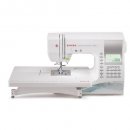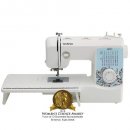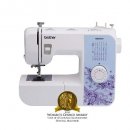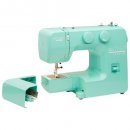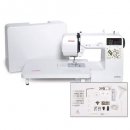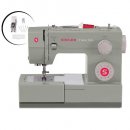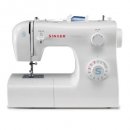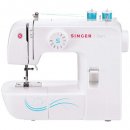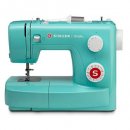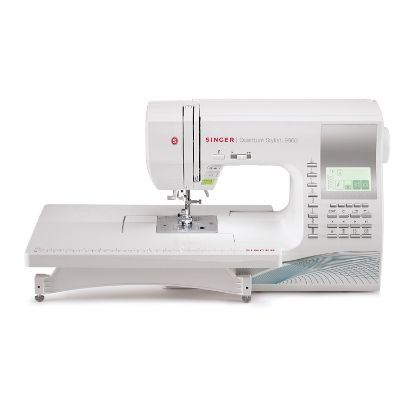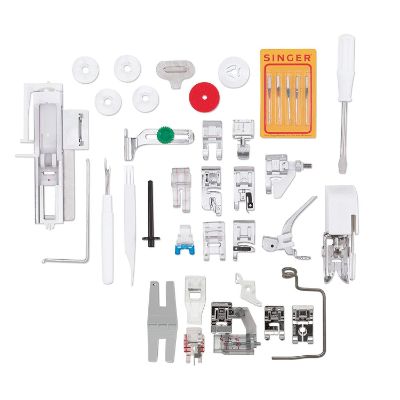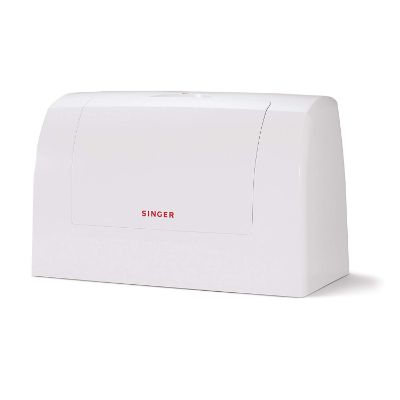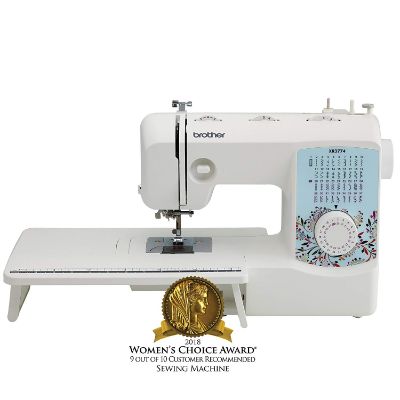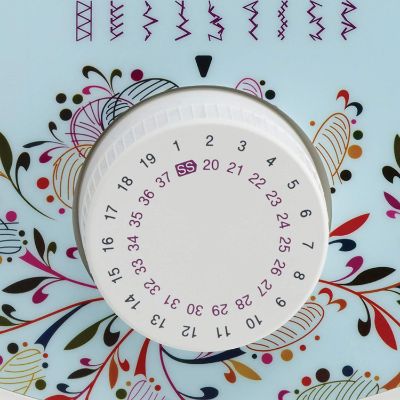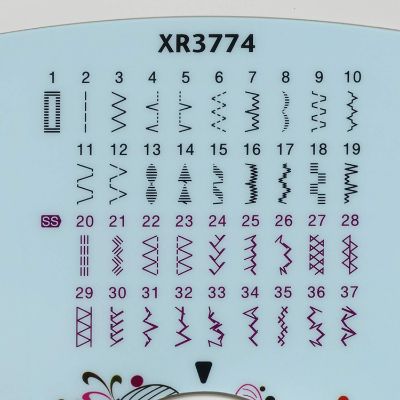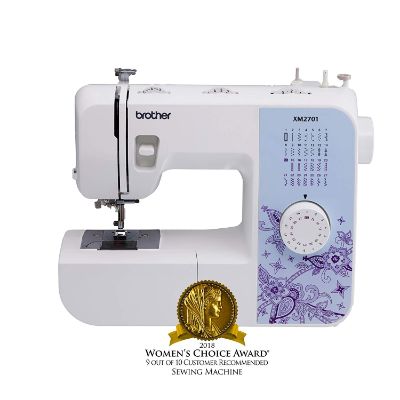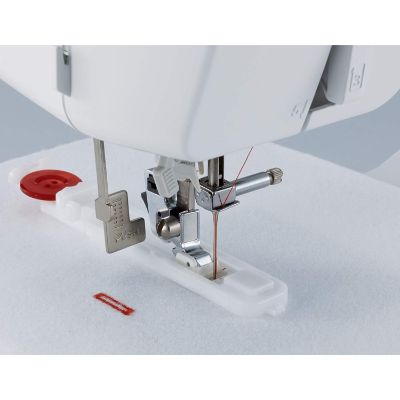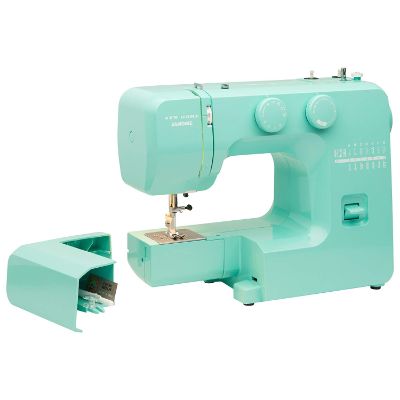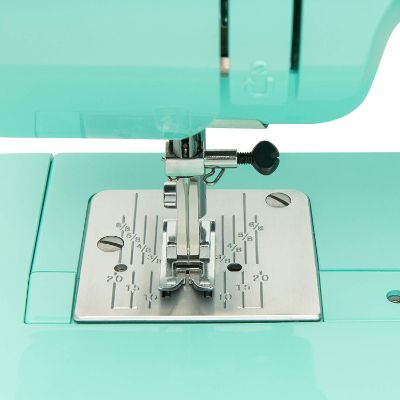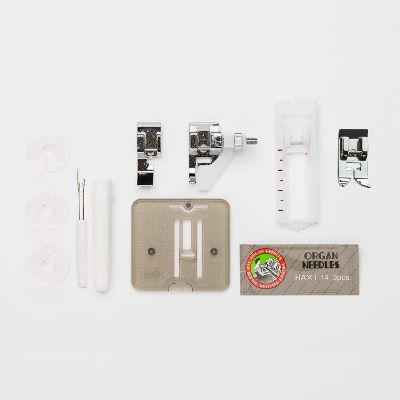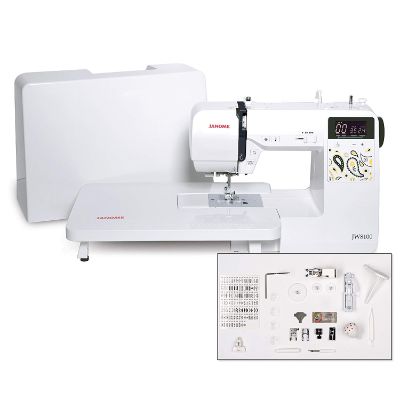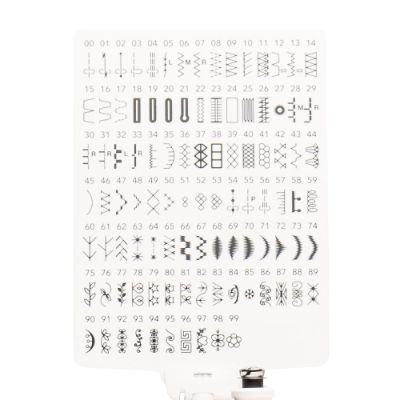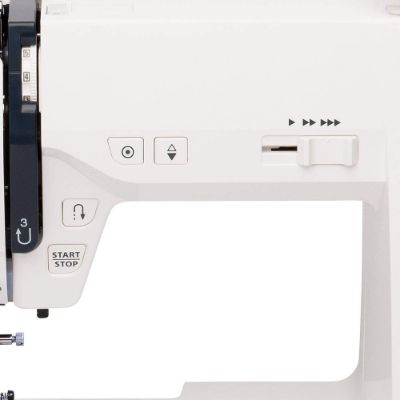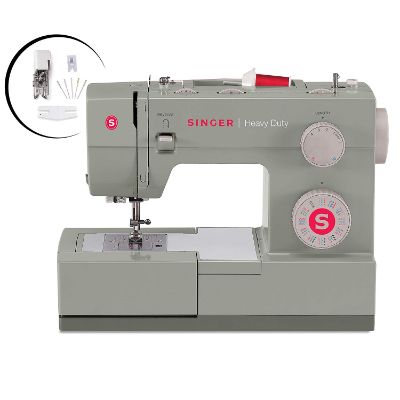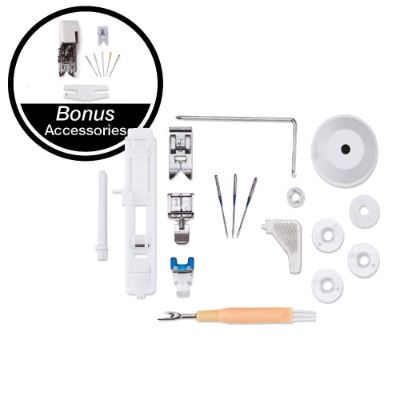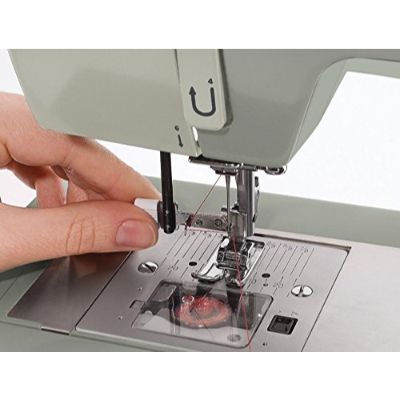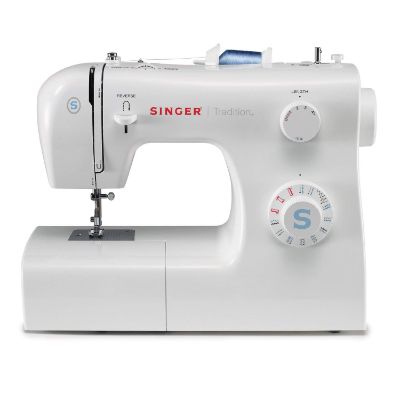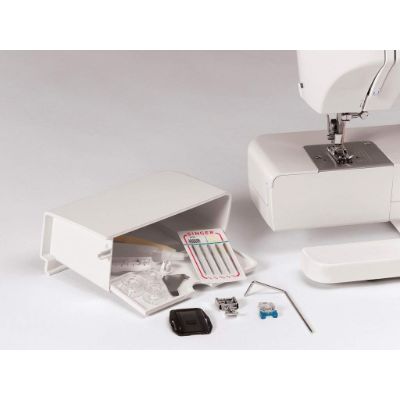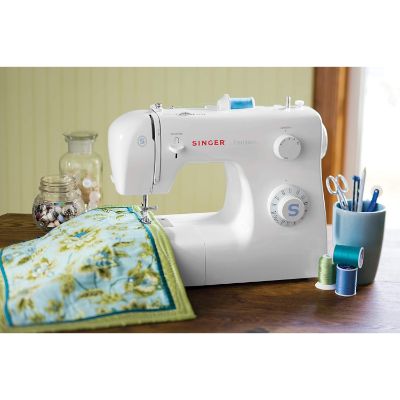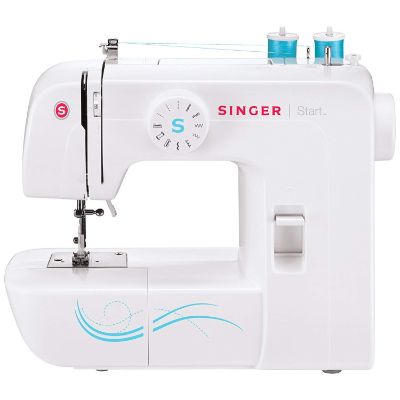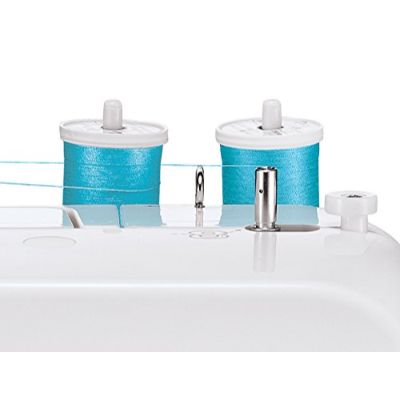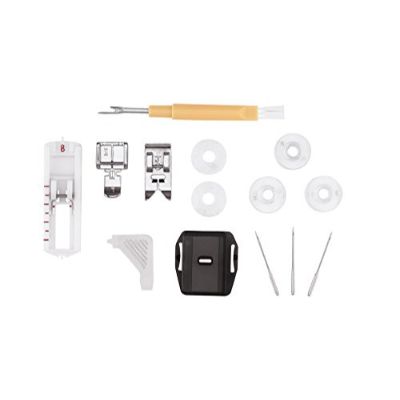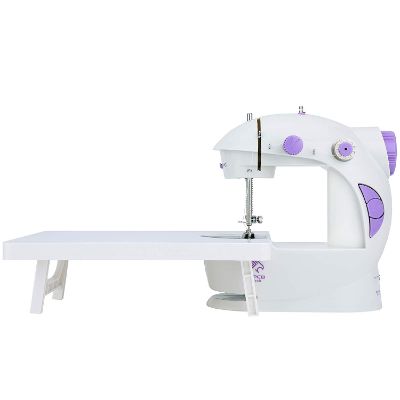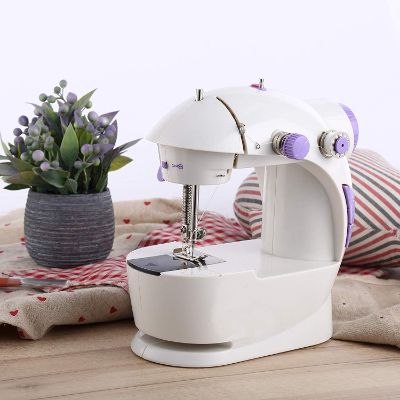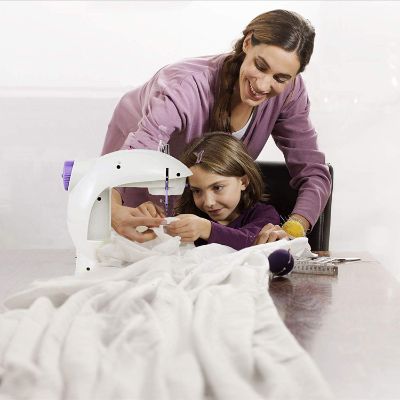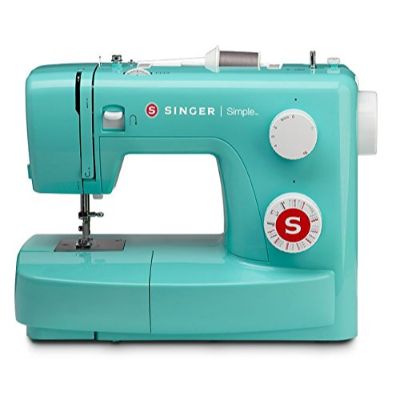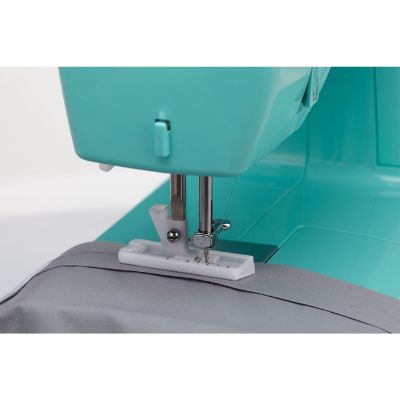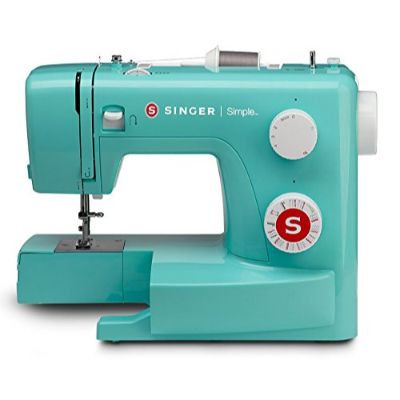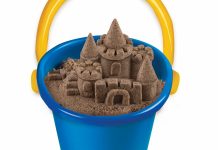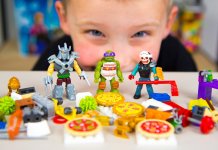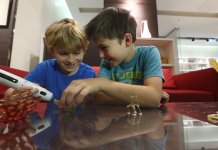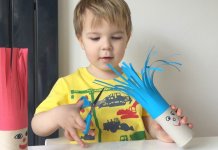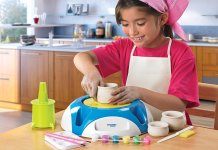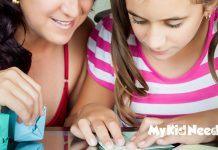10 Best Sewing Machines for Kids Reviewed in 2024
Foster a love of sewing in your child with a machine designed specifically for them. Sewing will encourage your child to get creative as well as stimulating their development. They will be able to increase their hand-eye coordination while also expressing themselves through original pieces. With our list of the ten best sewing machine for kids, the idea of sewing no longer has to be intimidating. Our list is composed of machines for children of all ages whether they are a beginner or a pro. Shop from our list and let the crafting begin!
In a Hurry? The test winner after 24 hrs of research
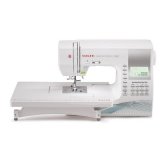
Portable
Includes 600 built-in stitches and fonts
Sews 850 stitches per minute
Bobbin is easy to see

10 Best Sewing Machines for Kids Reviewed
1. SINGER Quantum Stylist 9960
Portable
Includes 600 built-in stitches and fonts
Sews 850 stitches per minute
Bobbin is easy to see
Some reviewers wish the fonts were thicker
Your child can unleash their creativity wherever the inspiration hits them with the Singer Quantum Stylist portable sewing machine.
Read moreSafety
Ditch the scissors. When your child is done stitching they can use the thread trimmer button to cut the bottom and top of the thread.
Durability
The bobbin is easy to see, thus reducing the chance that you will run out of thread in the middle of a seam. With 600 stitches, 5 fonts, and the ability to elongate and mirror stitches, your child can create tons of original pieces.
Ease of Use
If your child is a beginner they can set the speed lower and increase it as their skills progress. Projects can be sewn quickly, without sacrificing quality, due to this machine having the ability to sew at 850 stitches per minute. Tell your child to say goodbye to straining their eyes and getting frustrated while threading the needle because this machine is equipped with an automatic needle threader.With this machine your child can easily transform a beginner into a pro.
2. Brother XR3774
Stitch dial makes it easy to select a stitch
Includes wide table and free arm
User manual provides helpful tips and tricks
Machine is lightweight
Some reviewers would like the speed to be faster
The Brother XR3774 is loaded with user friendly features making this a great sewing machine for beginners.
Read moreSafety
The stitch dial makes it easy for your child to select their desired stitch. The included wide table gives your child plenty of room for larger projects. Sewing pant legs, sleeves, or cuffs can easily be done using the free arm. Beginners will learn a lot of helpful tips and tricks from the included user manual. This machine is great for beginners because it is safer to use.
Durability
Not to mention the needle is jam-resistant. Your child can set up their sewing station by themselves as the machine is lightweight. In addition to the sewing machine being durable, it also produces top-quality stitches. Your child can wear and use the projects they create without worrying about them falling a part.
Ease of Use
Sewing can be intimidating, but with all of the user-friendly features on this machine it is perfect for beginners. With the quick-set top drop-in bobbin, automatic bobbin winding system, and the easy needle threader getting started on a project is effortless. Designed with 37 stitch patterns your child can create clothes or sew decorative quilts.
3. Brother XM2701 Lightweight 1-Step
Stitch selector dial makes it easy to set your desired stitch
Instructional DVD provides clear step-by-step instructions
Jam resistant top drop-in bobbin will keep bobbin in place
Highly Portable
Non-adjustable pressure foot
Lacks speed controls
If your little one wants to dabble in the world of sewing but is intimidated by the large machines.
Read moreSafety
The LED light provides a bright work area for your child, thus you won’t have to worry about them straining their eyes. Your child can easily create jackets, shirts, or anything requiring a button as this machine is designed with a built-in one step buttonholer. The jam-resistant top drop-in bobbin will guarantee your child’s bobbin stays in place while they sew.
Durability
Purchase the Brother Sewing Machine XM2701 as it is equipped with plenty of user-friendly features for beginners. While it is great for those who are just learning to sew, it is also great for advanced sewers who are looks for a portable machine. With only 27 stitch patterns your child can learn the basics while also having the option to get creative as their skills progress.
Ease of Use
The Jam resistant top drop-in top bobbin guarantees a nice clean stitch as it will keep your bobbin in place. The stitch selector dial makes it easy for your child to select and set their desired stitch. The easy stitch selector dial takes the guessing out of knowing which pattern is chosen. Beginners will appreciate the lever on the side of the machine, as it will cause the machine to automatically thread the needle. An instructional DVD is included and will provide your child with clear step-by-step instructions for starting their first project.
4. Janome Arctic Crystal Easy-to-Use
Front-loading bobbin
15 stitch options
Removable storage arm
LED sewing light
Durable interior metal frame
No auto-threader
No thread-cutter
Janome designed this mint green beauty for beginners, with easy-to-use controls and numerous intuitive features.
Read moreSafety
Equipped with a removable storage compartment, your child can keep their station tidy and their sewing supplies organized. The large throat space gives your child the opportunity to take on big projects. An easy-to-read instruction manual is included just in case your child needs help.
Durability
The three-dog feeding system provides a smooth fabric feeding experience, while the stitch-length and -width feature adjusts the stitch to the proper settings. Another excellent feature for custom projects is the removable storage compartment. When it’s detached, you have a small, compact working space for sewing small openings on sleeves or pants. As you can see, this is truly a versatile machine for all your fashion, home decor and quilting needs!
Ease of Use
The snap-on presser feet, front-loading bobbin system and LED work light makes it easy for kids to set up the machine after just a few practice sessions. Once they’re ready to go, they have a choice of 15 stitches, including buttonhole.
5. Janome JW8100 Fully Featured
Extension table
Smooth fabric-feeding system
Hard-sided dust cover
100 stitch patterns
Attachable pincushion
Weak work light
The first thing you’ll notice about the Janome JW8100 is the extra-wide extension table. This is normally a separate accessory for most sewing machines, but it makes perfect sense for kids, who often need large workspaces.
Read moreSafety
This is great for kids who need a lot of space. The extra space and storage makes it safer for kids. Once they’re ready for home decor and quilting, the extension table makes it easy to work with thick, large pieces of fabric. Speaking of artistic projects, the machine’s built-in computer system houses 100 stitch patterns, seven buttonhole styles, and a memorized needle up/down feature.
Durability
With 18 quilting patterns, 28 home decor patterns, and 27 heirloom patterns, your child will have plenty of opportunities to get creative. Not only does the storage compartment have the ability to house your child’s sewing supplies but it can also be removed and used as a free arm. The interior is composed of a heavy-duty metal frame that provides this machine with a high level of durability, thus allowing your child to sew for years to come.
Ease of Use
The start/stop button, speed controls, and adjustable thread tension give kids a smooth, seamless sewing experience from one end of the fabric to the other. Clean up is easy as well, thanks to the hard-sided cover that keeps the machine dust-free whether it’s in storage or on display.
6. SINGER Heavy Duty 4452
Motor is 60% stronger than the average sewing machine
Equipped with 32-built in stitches
Sews 1,100 stitches per minute
Clear cover allows users to see the bobbin thread
Cord to pedal may not reach the floor on high tables
The Singer 4452 heavy duty sewing machine is perfect for sewing elegant garments as well as an array of other sewing projects.
Read moreSafety
Equipped with an automatic needle threader, your child won’t have to strain their eyes as the machine does all the work. This feature also eliminates the frustration that goes along with threading the needle.
Durability
Sewing through heavy fabrics is a breeze as this machine is designed with a motor that is 60% stronger than standard sewing machines. The clear cover makes it easy for your child to monitor the supply of the bobbin thread.
Ease of Use
With 18 decorative stitches, 7 stretch, 6 basic, and 1 automatic buttonholes this sewing machine has 32 built in stitches. If your child is wanting to create a high-quality product in a short amount of time, this is the sewing machine for the job. With a sewing speed of 1,100 stitches per minute, projects can be done effortlessly and quickly.
7. SINGER Tradition 2259
19 stitch patterns
Easy-to-use dials
Four snap-on presser feet
Adjustable stitch length
Arm with storage compartment
Manual bobbin threading
Not good with heavy fabrics
The Singer 2259 is called “Tradition” for good reason! It’s solid and classic in design, with big, easy-to-grab dials that any child can handle.
Read moreSafety
The stitch dial shows 19 clear patterns that your child can choose from with a simple turn of the knob. To make it safer, right above the stitch dial is the four-step buttonhole knob so that all the custom options are organized on one side of the machine. Along with a wide selection of stitches, you get four presser feet, including zipper and buttonhole.
Durability
In addition user-friendliness, you get the long-lasting durability of an interior metal frame with a 25-year warranty. Overall, this is a powerful, compact sewing machine that will serve your child’s needs well into adulthood! All of your child’s sewing supplies can remain in reach and organized as this machine is designed with a built-in storage compartment. The free arm makes it easy for your child to reach cuffs, pant hems, collars, and other difficult-to-reach areas.
Ease of Use
While this machine does not have an automatic threader, threading the needle is still quick and easy. Just follow the arrows on the side of the machine and your needle will be threaded in no time. Threading the needle and sewing their pieces will increase your child’s fine-motor skills and hand-eye coordination. If this is your child’s first machine, it’s easy-to-use features are sure to foster a love of sewing in them.
8. SINGER Start 1304 6 Built-in Stitches
Ideal for beginners
Dual spool pins
Easy dial controls
Automatic buttonhole feature
Heavy duty metal frame
No auto threading
Start Sewing is the perfect name for this adorable, lightweight sewing machine by Singer. As you can see, there’s very little on this machine to confuse or overwhelm your future sewist.
Read moreSafety
There’s a large dial at the top with clear pictures of each stitch pattern. The threading diagram is also right on the machine for step-by-step threading. Once your child masters the art of straight stitching, it’s time to incorporate the dual spool pins for twin needle stitching.
Durability
This feature allows for parallel rows of stitches in any combination for decorative touches on clothes and ornamental items. Your child can also play around with the adjustment feature for presetting stitch lengths and widths.
Ease of Use
With a menu of only six stitch patterns and three presser feet, this is truly an easy, gentle way to introduce your child to sewing. Sometimes we forget how long it takes to master the basics, but sewing is one of those skills that requires considerable practice. Classic, user-friendly machines like this allow children to get truly comfortable with the foundation skills, which are still useful for many types of fashion, home decor and crafting projects.
9. Varmax Mini Sewing Machine with Extension
Great for beginners
Built-in light prevents eyes from straining
Extension table makes it is easy to work on large projects
Highly portable and durable
Does not have a reverse function
With the Varmax Mini your child can work on big or small projects no matter what size space they’re dealing with.
Read moreSafety
The low/high speed buttons will allow beginners to sew at a safe and steady pace. The built-in light will allow your child to see their stitches without straining their eyes. Encourage your child to use the extension table so they will have a more stable foundation when sewing.
Durability
Its compact size makes it possible for your child to transport this sewing machine from place to place. With it having a superior level of durability, your child can transport it without worry.
Ease of Use
With this sewing machine being a mini, it is perfect for small spaces. However, don’t let its size fool you. The included extension table makes it easy for your child to work on large projects. The thread spindle and winding pole make rewinding the bobbins simple and stress-free. Your child will easily be able to finish projects without encountering knotting as this machine is designed with double thread stitching.
10. SINGER Simple 3223R Handy
Auto bobbin winding
Adjustable thread tension
Multiple needle positions
Stitch length and width adjuster
25-year warranty
Side-loading bobbin can be tricky
Singer’s done it again with a simple, yet powerful sewing machine made with beginners in mind.
Read moreSafety
Once your child is ready to sew, the four-segment feed system and extra-high foot lifter provide a stress-free stitching experience from start to finish. Organizing parts and accessories is stress-free as well, thanks to the free arm with built-in storage.
Durability
The 3223R provides a solid foundation for sewing with features such as easy threading, snap-on presser feet, user-friendly stitch selector dial, and automatic four-step buttonholing. The stitch dial, by the way, offers 23 unique stitches for crafts, garments and home decor projects.
Ease of Use
Equipped with 23 stitch patterns, this machine can teach your child the basics while also letting them get more creative as they advance. The variety of colors this machine comes in allows your child to personalize their sewing space, which will ultimately get them more excited to sew. With the high presser foot lifter your child can raise the machine to a higher level to make it easier to position your project. Large projects can be done in a timely manner as it sews up to 750 stitches per minute
Criteria Used for Evaluation

Safety
First, we want to acknowledge that sewing can never be 100 percent safe, which is why supervision is always recommended, even for advanced sewers. However, a sewing machine for kids should have certain features that make the sewing experience safer. We also want to clarify that sewing machines can be safe, whether they’re big or small, light or heavy. Having said that, beginners should probably start with lightweight machines and limited features that focus on the basics. That’s why quite a few of our picks have smooth, rounded surfaces and clearly labeled dials and/or button controls. Such features can go a long way in preventing injuries that can happen simply from trying to set up the machine.

Durability
Durability is the key to a long-lasting sewing machine, which is why we looked for machines with solid construction from the inside out. For example, metal interior frames are an absolute must for heavy-duty machines. The outer panels and switches should be made of thick plastic since they’ll be subject to heavy handling. We also considered how these machines would hold up during travel since many sewing enthusiasts hate to be without their machines for too long.

Ease of Use
Of course, the vast majority of our picks are not computerized machines, but many of them still have innovative technical features for a user-friendly sewing experience. Auto-threaders and thread cutters are incredibly helpful since threading is one of the most frustrating tasks for sewers of any age. Top-drop bobbins with clear plates and built-in bobbin winders are welcome to time and sanity savers, especially for kids who become easily frustrated.
We also focused on features that ensure proper securing and attachment of critical parts like the pressure foot and thread spool. Either of these parts coming loose or unraveling during the sewing process can do serious damage to your child’s fingers. That’s why we chose to stick with snap-on feet, which you can hear and feel as they lock in place.
We also like easy speed control, especially dual-control options through either the foot pedal or a switch on the machine. Easy to reach on/off switches are critical as well, which is why all of our picks have these switches in front of the machine. We also did our best to pick machines with easily identifiable images for the on/off and speed functions.
As a general rule, if they can’t be trusted to stay intact when packed into a standard suitcase, then it’s not durable enough to be on our list. An exception to the rule is computerized sewing machines, which have to be handled carefully since they contain super-sensitive parts like motherboards. In all honesty, we don’t recommend traveling with these unless you can store them in a carry-all, but many are really too big for that purpose.
We used the aforementioned guidelines to find companies with proven reputations for rugged, built-to-last machines. Many of these companies like Brother and Singer offer 25-year warranties, which also factors into a machine’s durability. While the warranty itself doesn’t make a machine durable, the fact that you have it ensures that you’ll have the machine for a set number of years.
Other Factors to Consider

Age Range
These requirements, however, are not as stringent for the mini portables that are specifically made for beginners. These are extremely light because they lack metal frames, but that’s not necessary for small, “practice” machines that are only meant for basic hems and stitches. It’s expected that children with a real interest in sewing will transition to bigger machines while keeping the these around as back-ups. Still, you can be assured that we only selected machines from companies with proves reputations, like Singer and Brother.
Frequently Asked Questions
q: Computerized or mechanical: which is better for a beginner?
As a general rule, mechanical sewing machines tend to be better for beginners. Before we state the reasons why, please be aware that we are talking about portable electronic sewing machines when we say “mechanical.” These are lighter and more advanced than the all-metal stationary machines, but they lack most of the customization that you would get from a computerized machine.
As for why they’re better for beginners, the main reason is that they’re easy to operate. The vast majority are push-button models for better speed control. They also have limited stitch and buttonhole options, so beginners can focus on the basics without getting overwhelmed. Mechanical machines are also easier to clean, which is important for fostering independence, even if you’re helping them with most of the steps. However, computerized sewing machines have their advantages, especially for kids who show great aptitude for crafting projects. Programmable computer options provide a lot of shortcuts through options like auto thread cutting and lock stitching for neater finishes without even trying. Overall, both types of machines have their pros and cons, so it’s a real matter of what your child is ready for.
q: Can these machines handle thick layers of fabric?
Some are definitely better than others for heavy-duty projects, though most beginner sewing machines are meant for thinner fabrics. That makes sense given that little kids and beginners should start with very simple projects that focus on skills like even stitching.
In general, the heavier sewing machines with metal frames are best for thick fabrics. We highly recommend computerized sewing machines like the Eversewn Charlotte and the Janome 8100, which have highly specialized functions for quilting and home decor. These functions are clear signs of a heavy-duty sewing machine since quilting and home decor typically require thick, multilayers of fabric. These machines have additional features, such as high SPM (stitches per minute) and adjustable thread tension, which are essential for powering through thick fabrics.
q: Which machine has the best potential to grow along with my child’s abilities?
If you’re quite sure that you’ve got a budding seamstress on your hands, it’s understandable that you want a machine with a comprehensive set of features and design options. Most people opt for computerized sewing machines since they offer tons of stitch patterns and presser feet options for all kinds of fabrics. Furthermore, their high-tech features like LCD light-up screens, preset memory functions, and adjustable thread tension provide a lot of helpful shortcuts as your child takes on more demanding sewing tasks.
However, computerized sewing machines can be overwhelming for some kids since there are so many programming options. Unless your child is already a wiz with computers and smartphones, it may be better to go with a standard sewing machine that’s strong enough to handle big projects. You’ll want to look for machines with sturdy metal frames, and heavy-duty feeding systems for thick fabrics. Multiple buttonhole options and stitch patterns for quilting and embroidering are also indicative of sewing machines with long-term commitment potential.
q: Are these machines compatible with universal presser feet?
Universal presser feet sound like they should work on every sewing machine, but this is not necessarily the case depending on the type of shank adapter they use. For example, Singer has their own proprietary low-shank and slant-shank adapters, which only work with Singer brand snap-on feet. In addition, the attachment bar on their shank adapters is a bit skinnier than the ones you see on most other brands. Hence, a universal presser foot is unlikely to work with their machines.
For the sake of optimal safety and functionality, we recommend buying presser feet made for your specific brand of sewing machine. Presser feet that are not fully or correctly secured may pop off, which can result in serious injuries for your child. Furthermore, it can damage the machine, thereby ruining your child’s projects, and possibly voiding your warranty. That’s why it’s best to follow the manufacturer’s recommendations and to ask them about compatible alternatives before purchasing any replacement parts.
q: How often should I replace the needles?
his is an excellent question since needles are the cheapest, yet most important part of a sewing project. Frankly, most people don’t replace them enough, hence the preponderance of injuries and damage to the machine. A good rule of thumb is to replace needles every four hours of sewing time. This may sound like paranoia, but needles on sewing machine go through fabric hundreds to thousands of times per minute, so it doesn’t take long before they get dull or bent. Once that happens, you get looped threads, skipped stitches, runs in your fabric, or worst of all, damage to the machine.
With beginners, you can probably go longer in between needle changes since they’ll be working on simple projects for short durations of time. As they become advanced sewers, they’ll start working for longer periods of time on more complicated projects. They may also start using thicker fabrics for projects like quilting, in which case needles may have to be replaced even more often. Finally, remember to read the manufacturer’s instructions regarding care and maintenance. This is particularly important for ensuring that you don’t do anything to void your warranty.
q: How do I clean and maintain these machines?
Next to regular needle changes, cleaning is the best way to ensure that your child’s sewing machine works properly year after year. First and foremost, make sure to read the manufacturer’s instructions on proper care and maintenance. Singer, in particular, has proprietary parts and features that may require special cleaning. You should also have your sewing machine professionally serviced once a year, especially computerized sewing machines.
In the meantime, the machine should be cleaned after each project or at least every 10 to 12 hours of use. Beginners and young children should watch you do the entire process, but eventually, they will be able to help with steps like wiping down the insides of the machine. They can eventually move onto more advanced steps, liking blowing out lint with an air can or dropping lubricating oil onto the proper areas. While it seems like a lot of work, you should treat it like any other activity you do with your child. For children, the important thing is to spend time with them, whether you’re doing chores or playing games.
Sources
- , Singer Corporation, Wikipedia Page
- , Top 10 Reasons to Learn How to Sew!, Blog Article
- , Understanding Singer Shanks and Snap On Presser Feet, Blog Post
- , Sewing Machines – Advantages, Disadvantages, Problems & Maintenance, Online Article
- , Preventive Sewing-Machine Maintenance, Online Article

